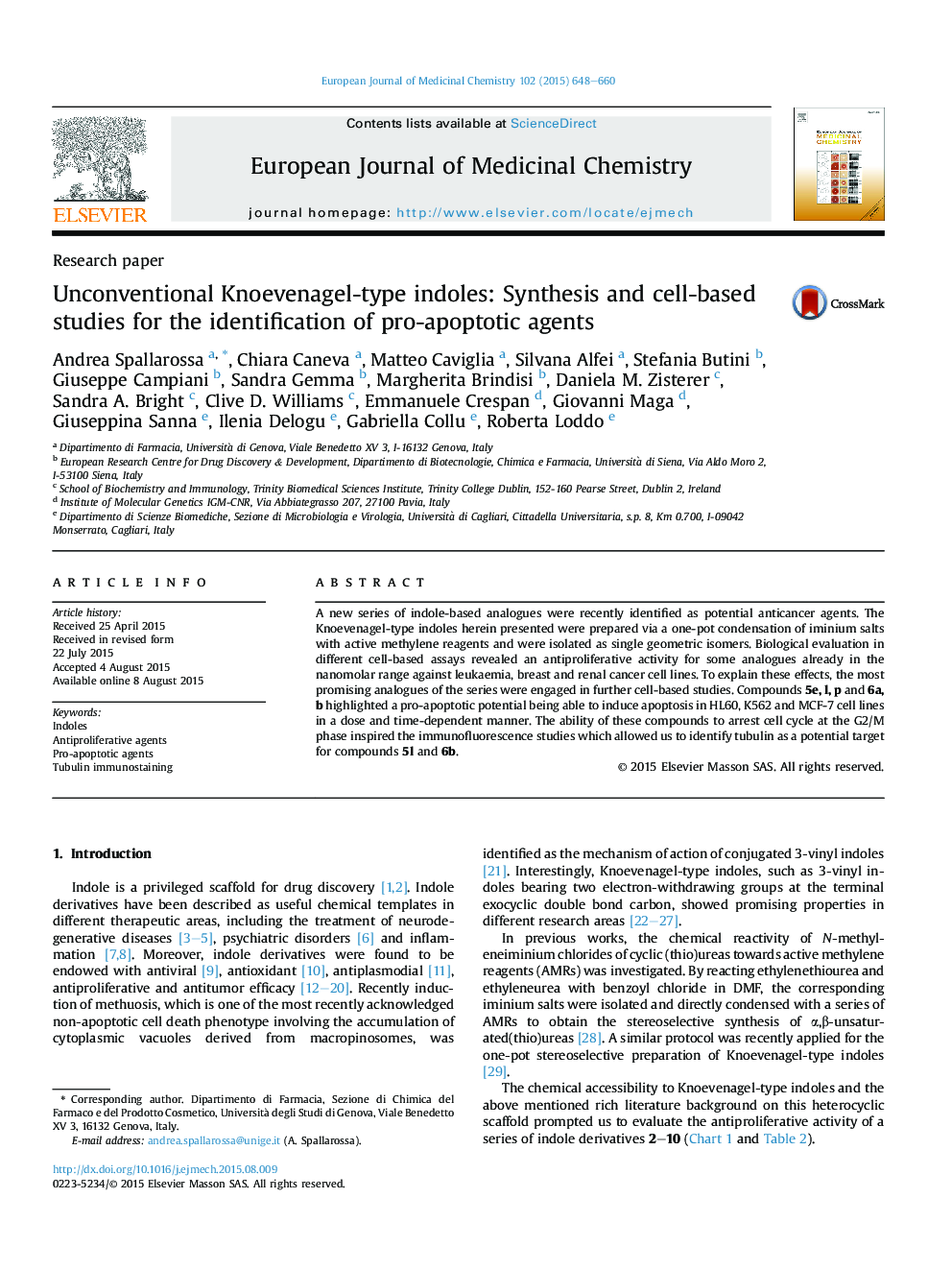| Article ID | Journal | Published Year | Pages | File Type |
|---|---|---|---|---|
| 1397263 | European Journal of Medicinal Chemistry | 2015 | 13 Pages |
•Synthesis of Knoevenagel-type indoles via one-pot procedure.•Selected compounds showed antiproliferative activities in cell-based assays.•Some derivatives caused apoptosis and partially depolymerised tubulin.
A new series of indole-based analogues were recently identified as potential anticancer agents. The Knoevenagel-type indoles herein presented were prepared via a one-pot condensation of iminium salts with active methylene reagents and were isolated as single geometric isomers. Biological evaluation in different cell-based assays revealed an antiproliferative activity for some analogues already in the nanomolar range against leukaemia, breast and renal cancer cell lines. To explain these effects, the most promising analogues of the series were engaged in further cell-based studies. Compounds 5e, l, p and 6a, b highlighted a pro-apoptotic potential being able to induce apoptosis in HL60, K562 and MCF-7 cell lines in a dose and time-dependent manner. The ability of these compounds to arrest cell cycle at the G2/M phase inspired the immunofluorescence studies which allowed us to identify tubulin as a potential target for compounds 5l and 6b.
Graphical abstractFigure optionsDownload full-size imageDownload as PowerPoint slide
